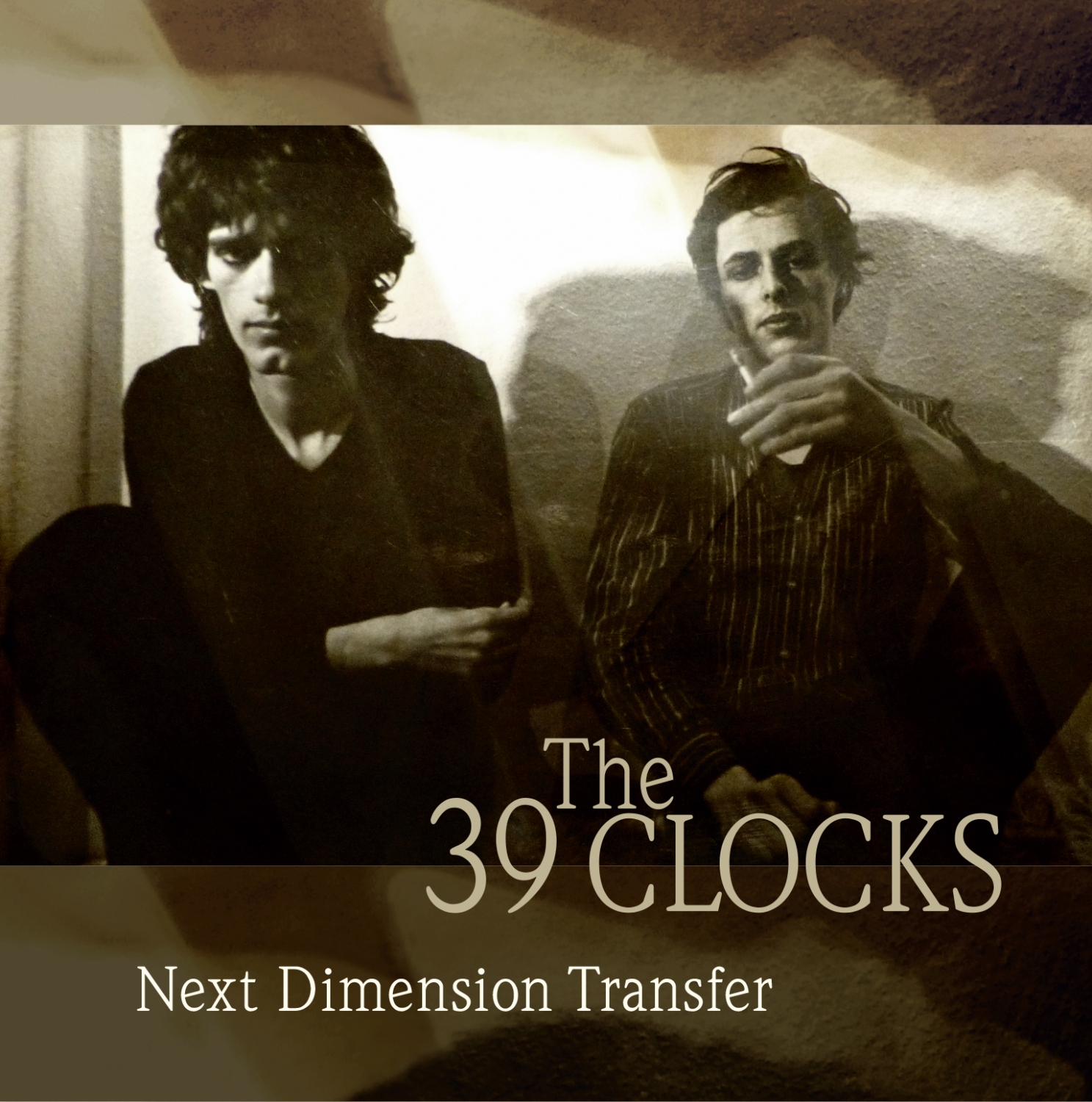The 39 Clocks are one of the most magnificent bands ever to have emerged from Germany being considered one of the nation’s best bands of the 1980s by German pop boffin Diedrich Diederichsen. The legendary duo from Hanover broke every rule in the music business, without exception and above all, with attitude. The very appearance of The Clocks was beyond compare; the odd grainy black and white photograph reveals two wiry figures in Beatnik attire and sunglasses. They are elusive, incapable of being categorised, unless the category is a little bit weird. Their real names have been eradicated, “never had one” they say, replaced by cryptic initials (CH-39, JG-39), less than randomly reminiscent of molecular chains like LSD-25. The weirdness is reflected in their music: sizzling irradiated, repetitive.
The Clocks project really began to take shape in 1979 when they turned away from punk and created “psycho beat”, positioning themselves as the antithesis of the emerging NDW/German New Wave movement. Their music is a futuristic, definitively urban, evolution of American garage punk from the 1960s. Their stylistic modus operandi: expressionless voice, English lyrics with an intentionally heavy German accent, dirty sound, cool monochrome image.
The outrageous rumours surrounding the duo are the stuff of legend: strung out live performances with vacuum cleaners instead of guitars, frequently facing a throng of concertgoers with a tendency to boo, flee the venue or threaten them with physical violence. Sometimes exasperated promoters simply pulled the plug (literally). Those lacking in imagination might identify touches of the Velvet Underground and stop right there, but many other influences were also at work: from Salvador Dali via the Troggs, Suicide, Peter Handke’s Offending The Audience, Antoine to Tiny Tim, Kurt Schwitters, Can and NEU! The Clocks themselves spoke of “at least 123” sources of inspiration. In early 1980s Germany, The 39 Clocks were, at one and the same time, a panoply of discernible influences and a singular phenomenon with a clear, inimitable sonic identity. Time and again, The 39 Clocks succeeded in pushing back the borders of experimentation a little further: barely tolerable, protracted live improvisations, atonal passages, background noises, extreme lo-fi and a tinny beatbox test the listener’s receptivity to the limit. Yet The Clocks’ radicalism earned them worldwide acclaim. Their records were sought after in such far flung countries at the time such as England, Greece and the US. And their sonic experiments popped up in various film soundtracks, including Nightfall, 23 – Nichts ist so, wie es scheint and television series like Halt and Catch Fire in the US.
The Next Dimension Transfer box set, authorised by the band, provides the ultimate overview of the Clocks’ output – a phantom of the German music underground, enshrouded in myth and yet incredibly productive musically. It is a walk through their history and a must for any fan of the musically esoteric.

















No Comment